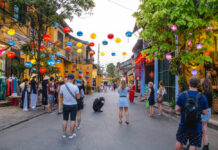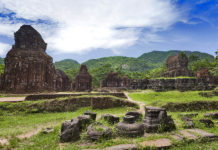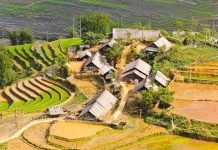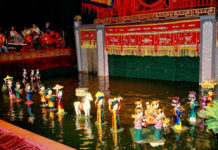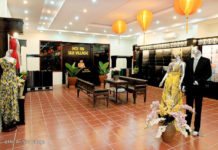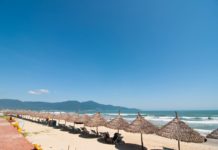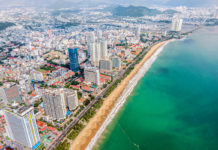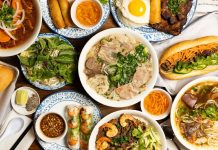Vietnam is a beautiful country with a rich history, vibrant culture, and stunning landscapes. It has become an increasingly popular tourist destination in recent years, attracting millions of visitors from all over the world. However, before you embark on your journey to this Southeast Asian gem, there are some important things you should know. In this article, we will provide you with some essential tips to help you make the most out of your trip to Vietnam.
Who Should Read This Guide?
- First-time travelers
- Experienced travelers
- Families
- Solo travelers
- Budget travelers
This guide is for anyone planning to visit Vietnam, whether it’s for a short vacation or a longer stay. It is especially useful for first-time travelers who may not be familiar with the country’s customs, culture, and practicalities. Even if you have been to Vietnam before, this guide can still offer valuable insights and tips to enhance your experience.
How to Prepare for Your Trip to Vietnam
Research and Plan Ahead
Before you visit Vietnam, it is important to do your research and plan ahead. This includes researching the best time to visit, the places you want to see, and the activities you want to do. Vietnam has a diverse climate, so it’s important to choose the right time of year for your trip. Also, make sure to check visa requirements and apply for one if necessary.
Pack Appropriately
Vietnam has a tropical climate, so it’s important to pack light and breathable clothing. However, if you plan on visiting the northern mountainous regions, make sure to bring some warm layers as it can get chilly. Don’t forget to pack comfortable shoes as well, as you will likely be doing a lot of walking. Other essentials include sunscreen, insect repellent, and a travel adapter.
Learn Some Basic Vietnamese Phrases
While English is widely spoken in major cities and tourist areas, it’s always a good idea to learn some basic Vietnamese phrases. This will not only help you communicate with locals but also show your respect for their culture. Some useful phrases to learn include “hello” (xin chào), “thank you” (cảm ơn), and “how much?” (bao nhiêu tiền?).
Pros and Cons of Visiting Vietnam
Pros:
- Affordable prices: Vietnam is known for its low cost of living, making it an ideal destination for budget travelers.
- Delicious food: Vietnamese cuisine is famous for its fresh ingredients, bold flavors, and diverse dishes.
- Stunning landscapes: From the bustling cities to the serene countryside, Vietnam offers a variety of breathtaking landscapes to explore.
- Rich culture and history: Vietnam has a long and fascinating history, which is reflected in its architecture, traditions, and customs.
- Warm and welcoming people: Vietnamese people are known for their hospitality and friendliness towards tourists.
Cons:
- Language barrier: While English is widely spoken, there may still be some communication challenges, especially in rural areas.
- Traffic and pollution: The traffic in Vietnam can be chaotic, and the air quality in major cities may not be the best.
- Scams: As with any popular tourist destination, there may be some scams targeting unsuspecting travelers.
- Crowds: Some popular tourist spots can get quite crowded, especially during peak season.
- Cultural differences: It’s important to be aware of and respectful of cultural differences when visiting Vietnam.
Alternatives to Traditional Accommodations
While hotels and resorts are the most common types of accommodations in Vietnam, there are other options that may suit your needs and preferences better.
Homestays
Homestays offer a more authentic experience, allowing you to stay with a local family and immerse yourself in their daily life. This is a great option for those who want to learn more about Vietnamese culture and customs.
Hostels
Hostels are a popular choice among budget travelers, offering affordable dorm-style accommodations and a chance to meet other travelers from around the world. They also often organize group activities and tours, making it easier to explore Vietnam on a budget.
Airbnb
Airbnb has become increasingly popular in Vietnam, offering a variety of unique and affordable accommodations, from private rooms to entire apartments or houses. This is a great option for families or groups who want more space and privacy.
Step by Step Guide to Planning Your Trip to Vietnam
- Choose the best time to visit based on your preferences and budget.
- Research and plan your itinerary, taking into account travel time between destinations.
- Apply for a visa if necessary.
- Book your flights and accommodations.
- Pack appropriately for the weather and activities you have planned.
- Learn some basic Vietnamese phrases.
- Familiarize yourself with the local currency and exchange rates.
- Make copies of important documents such as your passport and travel insurance.
- Get any necessary vaccinations and medications.
- Purchase travel insurance.
- Inform your bank and credit card company of your travel plans.
- Download useful apps such as Google Maps and translation tools.
- Check for any travel advisories or safety precautions.
- Have a plan for communication and staying connected while in Vietnam.
- Enjoy your trip!
Tips for a Smooth and Enjoyable Trip to Vietnam
- Be respectful of local customs and traditions.
- Bargain when shopping at markets and street vendors.
- Try the local street food, but make sure it’s from a clean and reputable vendor.
- Don’t drink tap water, stick to bottled water.
- Carry small bills and change for convenience.
- Keep an eye on your belongings, especially in crowded areas.
- Be cautious when crossing the street, as traffic can be chaotic.
- Take your time and don’t try to cram too many activities into one day.
- Embrace the culture and enjoy the experience!
FAQs
Is Vietnam safe for tourists?
Yes, Vietnam is generally a safe country for tourists. However, it’s always important to take precautions and be aware of your surroundings.
Do I need a visa to visit Vietnam?
It depends on your nationality. Some countries are exempt from visas for certain periods of time, while others require a visa. Make sure to check the requirements before your trip.
What is the best time of year to visit Vietnam?
The best time to visit Vietnam depends on your preferences and the regions you plan on visiting. Generally, the dry season (November-April) is considered the best time to visit, but it can get quite hot in some areas during this time.
Can I use US dollars in Vietnam?
While US dollars are accepted in some places, it’s best to exchange your currency for Vietnamese dong. You can do this at banks or exchange offices.
Is it necessary to tip in Vietnam?
Tipping is not expected in Vietnam, but it is appreciated for exceptional service. In restaurants, a 5-10% tip is sufficient.
Conclusion
Vietnam is a beautiful and diverse country that offers something for every type of traveler. By following these tips and doing your research, you can ensure a smooth and enjoyable trip to this Southeast Asian gem. From its stunning landscapes and rich culture to its delicious food and warm people, Vietnam is a must-visit destination for any traveler. So pack your bags, learn some basic Vietnamese phrases, and get ready for an unforgettable adventure!

